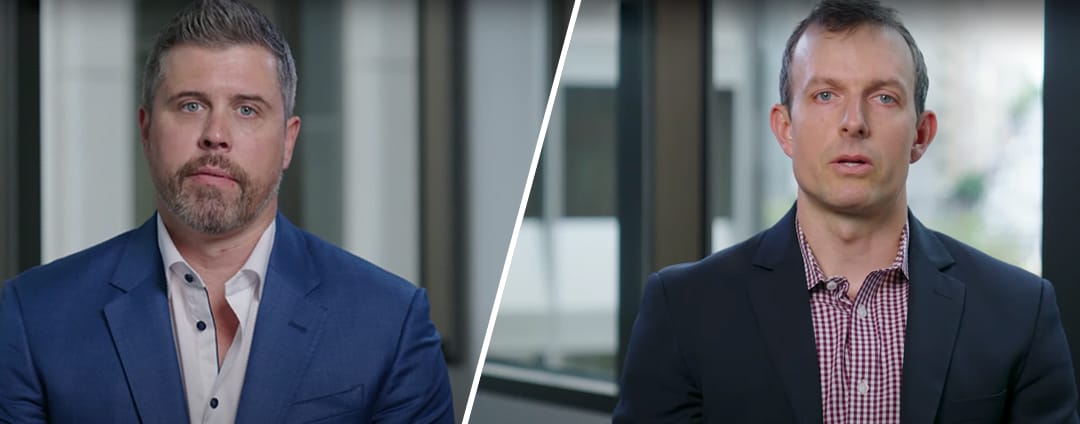[Graphic]
Simplify, innovate, and thrive.
[Voiceover]
Adopting instant payments as part of your business strategy can help simplify financial transactions and give you a competitive advantage. If you aren’t already thinking about these innovative payment platforms, you may be missing opportunities.
[Graphic]
Instant payments:
- 24/7/365 convenience
- Lightning-fast settlement
- Built-in flexibility
[Voiceover]
Instant payments are contextual, immediately available, and can reduce the manual handling of complex transactions, offering convenience and flexibility.
[Graphic]
Instant payment methods:
- FedNow
- RTP®
- Push to card
- Zelle
RTP® is a registered service mark of The Clearing House Payments Company L.L.C.
Zelle® and the Zelle® related marks are wholly owned by Early Warning Services, LLC and are used herein under license.
For your protection, Zelle should only be used for sending money to customers and vendors who you trust.
[Voiceover]
There are many methods you can use to integrate instant payments. What’s most important is that you use them in a way that works for your business.
[Graphic]
- Revenue
- Customer experience
- Operational efficiency
[Voiceover]
The right payment platforms and providers can help drive new revenue growth, improve your customer experience and even enhance operational efficiency.
[Graphic]
Where are your opportunities?
[Voiceover]
Consider the following opportunities for your organization to incorporate instant payments into your business strategy.
[Graphic]
Strengthen business relationships
[Voiceover]
Instant payments help you move toward complete digital transactions. By reducing cash and checks and providing faster settlement, you can strengthen your relationships with your vendors and suppliers.
[Graphic]
Pay your supplier and contract workers instantly
[Voiceover]
With the ease of digital convenience, you can pay your suppliers instantly when needed.
[Graphic]
Reduce paperwork and follow-up required for reconciliation
[Voiceover]
And with the strong remittance data built into instant payments, you reduce the amount of paperwork and follow-up required for reconciliation.
[Graphic]
Delight your customers with speed and convenience
[Voiceover]
In today’s world, your customers most likely expect quick response and immediate action. Instant payments can be a strategic tool to help meet those expectations.
[Graphic]
Critical payments and on-demand transactions
[Voiceover]
For example, a customer can pay at their convenience, choosing when and how they pay.
[Graphic]
Instant refunds and adjustments
[Voiceover]
And you can build a secure customer service process for quicker refunds when needed.
[Graphic]
Offer easy upgrades
[Voiceover]
Instant payments can also help facilitate online purchases, upgrades and enhancements for your customers.
[Graphic]
Simplify life for your valued employees
[Voiceover]
Instant payments promote efficiency and simplify tasks for employees.
[Graphic]
Real-time payments for workers give you a competitive edge
[Voiceover]
Tasks such as paying contract workers can be completely digital, so payments are made in real time. That gives you an edge when competing for these workers.
[Graphic]
Disburse per diems safely, quickly
[Voiceover]
You can also automate and track per diems for travel – reducing complications associated with lost, stolen, or misplaced cash or checks.
Internally and externally, instant payments have the power to transform your business.
Wells Fargo can work with you to explore best practices and strategic ways to incorporate instant payments in your organization.
[Graphic]
Simplify, innovate, and thrive.
Instant Payment SimplifiedSM
Wells Fargo
©2024 Wells Fargo Bank, N.A. All rights reserved. Member FDIC.
Global Treasury Management products and services are provided by Wells Fargo Bank, N.A. Wells Fargo Bank, N.A. is a bank affiliate of Wells Fargo & Company. Wells Fargo Bank, N.A. is not liable or responsible for obligations of its affiliates.
Deposits held in non-U.S. branches, subsidiaries or affiliates are not FDIC or CDIC insured. Deposit products offered by Wells Fargo Bank, N.A. Member FDIC.













